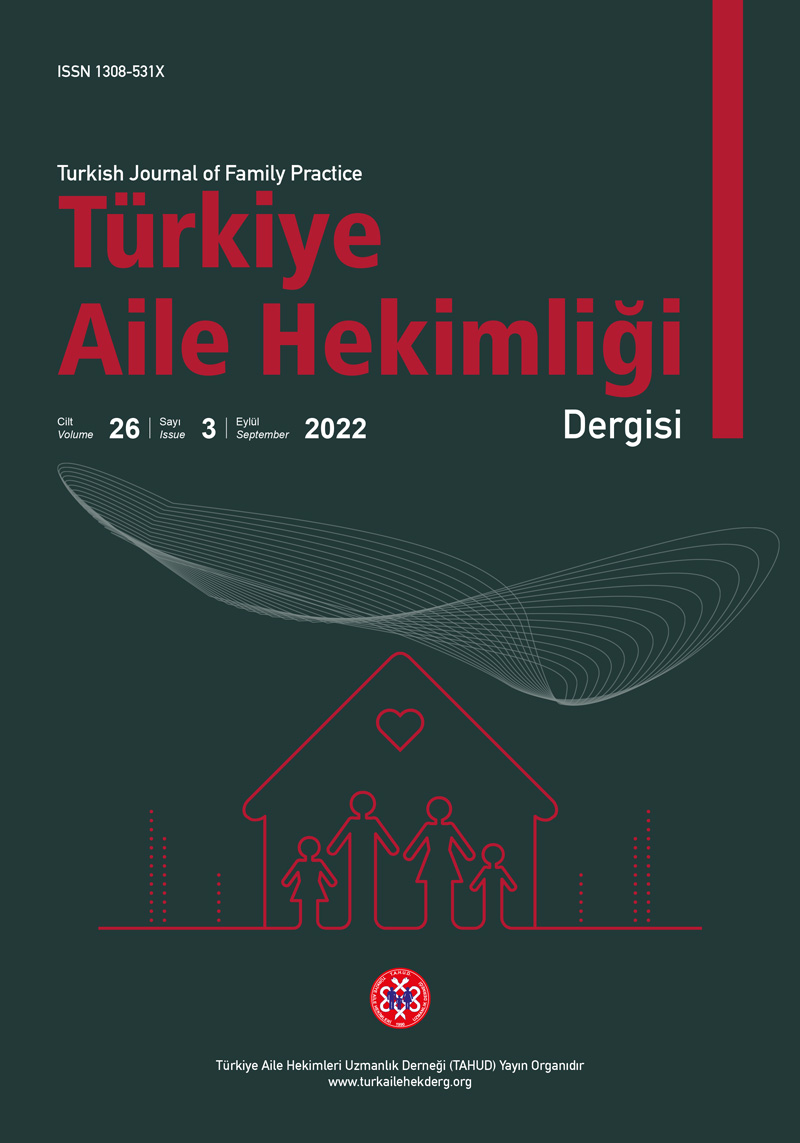Abstract
Aim: It was aimed to investigate the effect of family physicians’ consultation and relational empathy skills on the level of satisfaction with primary health care services.
Methods: This study is a cross-sectional study conducted with patients enrolled in Education Family Health Centers affiliated with Atatürk University Department of Family Medicine. Data were collected on age, gender, profession, education level, marital status, application reason, application frequency, registered time, and waiting time. Consultation and Relational Empathy (CARE) scale was used to measure the empathy that patients perceive from their physicians. Primary Care Assessment Survey (PCAS) with seven sub-dimensions (accessibility, continuity, inclusiveness, coordination, service satisfaction, physician’s personal approach, and trust) was used to measure satisfaction with primary health care services. Data analyzes were performed by SPSS 22 program. Student-t test, ANOVA test, Tukey’s B test, Pearson correlation test, and chi-square test were used in Post Hoc comparisons. The significance level was accepted as p<0,05.
Results: 341 volunteers participated in the study. Their mean age was 35,2±14,3 years. 67,2% of the participants (n=229) were women. The mean CARE score was 38,0±8,9. A positive correlation was found between the CARE score and all the PCAS sub-dimension scores (p<0.05). As the waiting time before consultation with the physician increased, it was observed that the mean scores in all CARE and PCAS sub-dimensions decreased significantly (p<0.05). It was found that the PCAS scores of the participants who applied to the family physician once a month were statistically significantly higher than the participants who applied once a year (p<0.05).
Conclusion: It was observed that there was a correlation between the consultation and relational empathy skills of family physicians perceived by the patients and the level of satisfaction of the patients with primary health care services. As the patients’ waiting time increased, the satisfaction and perceived empathy decreased. Participants who visit the family health center once a month are more satisfied than those who visit once a year. Accordingly, physicians’ training to increase their empathy level, shortening the waiting times by making appointments of patients and ensuring continuity will increase satisfaction in primary health care services.
Keywords: Empathy, patient satisfaction, family medicine, CARE, PCAS
Copyright and license
Copyright © 2022 The Author(s). This is an open access article distributed under the Creative Commons Attribution License (CC BY), which permits unrestricted use, distribution, and reproduction in any medium or format, provided the original work is properly cited.










